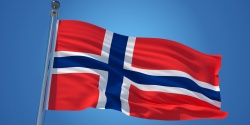Published: 27.01.2021

The European Court of Human Rights found that Norway again violated parental rights. The case involved a woman whose daughter was taken away due to, among others, partly misdiagnosed mental issues. The child remained in foster care for four years, despite the fact that over time the mother’s health and sense of responsibility improved. The Ordo Iuris Institute intervened in this case and acted as an amicus curiae.
In 2011, the woman gave birth to a daughter in a Norwegian hospital. The midwife, who took care of the mother during pregnancy, reported her to Barnevernet (Child Welfare Services), pointing out that 10 years before she had suffered from post-partum depression after giving birth to her first child. Once the services stepped in, the mother was examined by an internist, who diagnosed her with emotionally unstable personality disorder and mild intellectual disability. The services offered her an ultimatum: either they will take away her daughter or she will live with her in a public family support centre. The woman chose the latter.
Only 9 days later, the government decided to take the child from her anyway. According to the centre personnel, the woman had difficulties with taking care of her daughter’s hygiene and interacting with her. Barnevernet granted her the right to one visit every three weeks, which was then quickly limited to four one-hour meetings per year.
After 18 months, the woman filed a request for her daughter to be returned to her. It occurred that she was erroneously diagnosed with intellectual disability, when in fact she suffered from hyperactivity (ADHD), for which she started to take medication that had positive results. Her psychologist submitted an opinion which stated that the woman had made significant progress and had become much more responsible. Nevertheless, Barnevernet denied her the right to her daughter’s return. In 2015, the child was placed for adoption and the decision – despite the mother’s appeals – was sustained by the Norwegian courts. They relied on “lack of bonds” between the woman and her daughter, who remained in foster care for four years.
In 2016, the woman filed a complaint to the European Court of Human Rights. The Ordo Iuris Institute intervened in this case and, with the permission of the president of section V of the Court, submitted an opinion as an amicus curiae presenting legal arguments in favour of the protection of parental rights. Eventually, in the judgment, the Court shared the view of the Institute. Consequently, it ruled that Norway violated Article 8 of the Convention guaranteeing the right to respect for private and family life.
“In the opinion submitted to the Court, we argued that Article 8 of the Convention clearly grants parents with ‘the right to a second chance’, if due to their helplessness or mental issues their children were temporarily taken away from them. This was the case of the applicant, who could not handle taking care of her daughter, but started working on self-improvement in order to be a better mother. Unfortunately, Norwegian Barnevernet operates on a vicious circle: first, it takes away the child, limits the time spent with the parent to a few short visits per year, and after several years – regardless of the parent’s efforts – places the child for adoption, pointing out the lack of bond between them – which was caused by the decisions of the services in the first place. In essence, the Court shared our opinion, emphasising that the state should ensure that the relationship between a child and its biological parents is restored. This is another judgement confirming that Norway has a fundamental problem with the respect for parental rights”, said Karolina Pawłowska, Director of the Centre of the International Law of the Ordo Iuris Institute.
Case of M.L. v. Norway, ECHR’s decision of 22 December 2020.

17.04.2025
• The Ordo Iuris Institute has prepared an opinion for the UN as part of a thematic report on surrogacy and its impact on the rights of women and children.

03.04.2025
• The Advocate General of the Court of Justice of the European Union (CJEU) has issued an opinion in a case involving a same-sex couple’s demand for their German marriage to be recognized as a marriage in Poland.

24.03.2025
On the 81st anniversary of the martyrdom of the Ulma family and the Jews they sheltered—who died at the hands of the German occupiers of Poland—the Ordo Iuris Institute is releasing a special commemorative infographic.

21.03.2025
• An Iranian national granted asylum in Hungary requested that her registered female gender be changed to male, indicating that she is transgender. Her request was denied due to the lack of surgical gender reassignment.